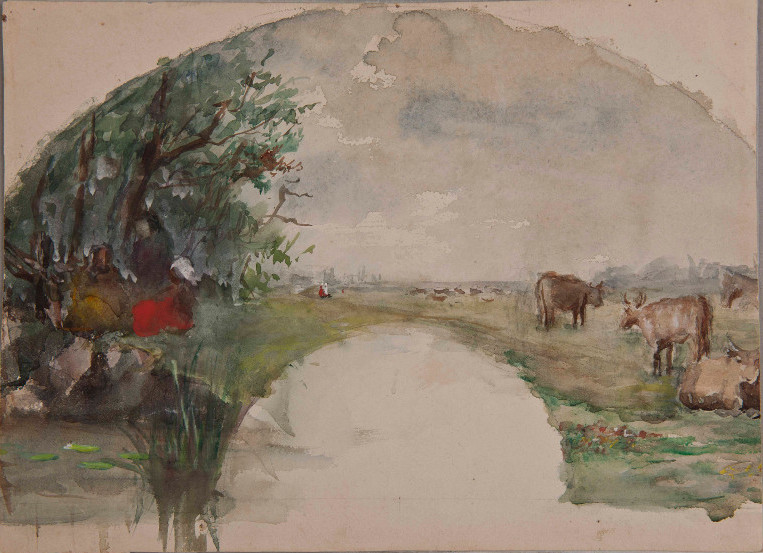Notes and Observations
Fan-shaped Landscape (15 x 11)

This pleine-aire landscape study exhibits virtually the full range of
homegrown impressionistic vocabulary associated with Winslow Homer's mesmerizing
American realism: skyline & clouds, trees & leaves, shoreline rocks, water & lily
pads, flowers, figures – cows – the inimitable brushwork in this painting, as in all
nine found works, shares the unique structural fluency and well-tempered palette
characteristic of same period Homer watercolors.
A working drawing, this looks to be a preliminary sketch for the circa 1878
Mountainville/Houghton Farm series (see Weary, Girl on a Garden Seat,
and Warm Afternoon): compare the penciled structure, transparent washes and
heavy opaque gouache. In particular, juxtapose Driving Cows to Pasture –
note the phantomized skyline and diverging cows. Observe also: the square-legged cows in this landscape share
that idiosyncrasy with the square-legged cow depicted in Homer’s unsigned and
undated (circa 1875) watercolor Blossom Time in Virginia.
Homer’s strategic use of crimson daub is a singularly important detail; a benchmark
according to Randall Griffin (Winslow Homer, an American Vision, 2006, ref. 1877’s
In the Mountains): "One woman’s incandescent red dress showcases Homer’s talent for
using small areas to energize an entire scene.” Arguably Homer’s signature stroke,
this variable device is featured in many of his works throughout his career. In this
instance the crimson daub enlivens the presence of a figural group (foreground),
repeats in the figural pair (middle ground), and portrays the far distant figure.
It is worth noting that Homer was criticized during this period for evoking elements
of Japanese “fan painting.”